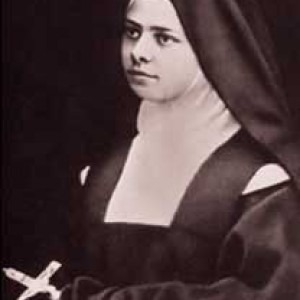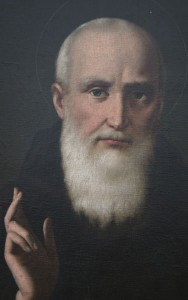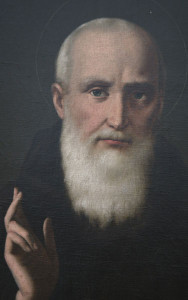Podcast: Play in new window | Download (Duration: 28:19 — 19.6MB) | Embed
Subscribe: Apple Podcasts | Spotify | Amazon Music | Android | Pandora | iHeartRadio | JioSaavn | Podchaser | Gaana | Podcast Index | Email | TuneIn | Deezer | Anghami | RSS | More

Episode 5 “Heaven in Faith” Day 3 Prayer 1 – “We will come to him and make our home in him“
Day 3 First Prayer
9. “If anyone loves Me, he will keep My word and My Father will love him, and We will come to him and make our home in him.” The Master once more expresses His desire to dwell in us. “If anyone loves Me”! It is love that attracts, that draws God to His creatures: not a sensible love but that love “strong as death that deep waters cannot quench.”
10. “Because I love My Father, I do always the things that are pleasing to Him.” Thus spoke our holy Master, and every soul who wants to live close to Him must also live this maxim. The divine good pleasure33 must be its food, its daily bread; it must let itself be immolated by all the Father’s wishes in the likeness of His adored Christ. Each incident, each event, each suffering, as well as each joy, is a sacrament which gives God to it; so it no longer makes a distinction between these things; it surmounts them, goes beyond them to rest in its Master, above all things. It “exalts” Him high on the “mountain of its heart,” yes, “higher than His gifts, His consolation, higher than the sweetness that descends from Him.” “The property of love is never to seek self, to keep back nothing, but to give everything to the one it loves.” “Blessed the soul that loves” in truth; “the Lord has become its captive through love”!
Elizabeth of the Trinity. The Complete Works of Elizabeth of the Trinity, vol. 1 (featuring a General Introduction and Major Spiritual Writings) (Elizabeth of the Trinity Complete Work) (pp. 96-97). ICS Publications. Kindle Edition.
Discerning Hearts Reflection Questions
We would like to thank Miriam Gutierrez for providing “the voice” of St. Elizabeth for this series
For other episodes in the series visit the Discerning Hearts page for Dr. Anthony Lilles
Anthony Lilles, S.T.D., has served the Church and assisted in the formation of clergy and seminarians since 1994. Before coming to St. Patrick’s, he served at seminaries and houses of formation in the Archdiocese of Denver and the Archdiocese of Los Angeles. The son of a California farmer, married with young adult children, holds a B.A. in theology from the Franciscan University of Steubenville with both the ecclesiastical licentiate and doctorate in spiritual theology from the Pontifical University of Saint Thomas Aquinas in Rome (the Angelicum). An expert in the writings of St. Elizabeth of the Trinity and the Carmelite Doctors of the Church, he co-founded the Avila Institute for Spiritual Formation and the High Calling Program for priestly vocations. He also founded the John Paul II Center for Contemplative Culture, which hosts symposiums, retreats, and conferences. In addition to his publications, he blogs at www.beginningtopray.com .



 St. John Paul II, notably influenced by Elizabeth, exemplifies her wide-reaching impact, showcasing her role in deepening the spiritual lives of many, including his own. Despite limited access to the full Bible, Elizabeth’s reflections demonstrate a profound scriptural engagement, akin to Lectio Divina, showcasing her deep understanding and integration of scripture into her reflections on prayer and communion with God.
St. John Paul II, notably influenced by Elizabeth, exemplifies her wide-reaching impact, showcasing her role in deepening the spiritual lives of many, including his own. Despite limited access to the full Bible, Elizabeth’s reflections demonstrate a profound scriptural engagement, akin to Lectio Divina, showcasing her deep understanding and integration of scripture into her reflections on prayer and communion with God.




